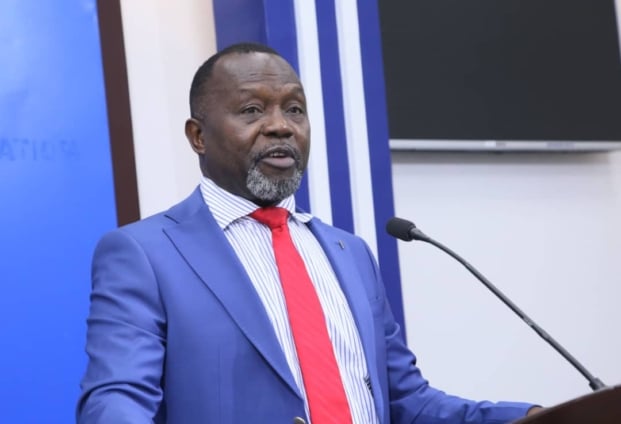The controversy surrounding the Attorney General’s public pronouncements on alleged payroll fraud at the National Service Authority (NSA) has sparked a heated debate about due process, the presumption of innocence, and the appropriate forum for legal proceedings. Richard Ahiagbah, Director of Communications for the opposition New Patriotic Party (NPP), has sharply criticized Attorney General Dr. Dominic Ayine for what he perceives as a premature and prejudicial public indictment of former NSA officials. Ahiagbah argues that by disclosing the alleged GH¢548 million fraud and naming 12 former NSA officials, including prominent figures like Mustapha Ussif, Osei Assibey Antwi, and Gifty Oware-Mensah, the Attorney General has effectively tried and convicted these individuals in the court of public opinion before any formal legal proceedings have commenced. This, Ahiagbah contends, undermines the fundamental principle of presumption of innocence and potentially jeopardizes the fairness of any subsequent trial.
At the heart of Ahiagbah’s critique is the concern that the Attorney General’s public pronouncements, delivered via a press conference, have already shaped public perception of the accused. He argues that the average Ghanaian, having heard the allegations and the names of the accused, will likely assume their guilt regardless of the outcome of any future court proceedings. This, he asserts, violates the spirit and letter of Article 19 of the Constitution, which guarantees fair trial rights to all accused persons. Ahiagbah questions the legal and ethical propriety of the Attorney General’s actions, particularly given his position as the chief legal officer of the state. He emphasizes that the courtroom, not the media, should be the arena for presenting and adjudicating legal matters. He further questions the Attorney General’s strategy, wondering what recourse there would be if the allegations fail to hold up in court, after having already tarnished the reputations of the accused individuals in the public eye.
The Attorney General’s decision to publicly announce the impending prosecutions, along with the names of the accused, has raised fundamental questions about the balance between transparency and the protection of individual rights. While transparency in government operations is generally lauded, critics like Ahiagbah argue that in this case, the Attorney General’s actions have crossed the line into prejudicing the accused. They argue that the details of the alleged fraud, including the names of those involved, should have been reserved for the courtroom, where evidence could be presented and scrutinized under the established rules of legal procedure. The premature public disclosure, they contend, not only taints public perception but also potentially influences potential jurors, making it more difficult to ensure a fair and impartial trial.
Ahiagbah’s criticism centers on the potential damage done to the reputations of the accused individuals, even if they are ultimately found not guilty in a court of law. The public airing of allegations, particularly those involving financial impropriety, can have lasting consequences, impacting careers, social standing, and personal well-being. The presumption of innocence is a cornerstone of any just legal system, and Ahiagbah argues that the Attorney General’s actions have disregarded this fundamental principle. He contends that by effectively trying the case in the media, the Attorney General has created an environment where it will be difficult for the accused to receive a fair hearing. The public pronouncements, he suggests, have already painted them as guilty in the eyes of many, potentially influencing the course of justice.
The Attorney General, however, maintains that his actions are justified. He asserts that the investigations into the alleged payroll fraud have been completed, and charges will soon be filed in court. His public announcement, he argues, is in the interest of transparency and accountability, informing the public about the outcome of the investigations and the steps being taken to prosecute those deemed responsible. He likely believes that the public has a right to know about alleged misuse of public funds and the actions being taken to address such misconduct. Furthermore, he might argue that his public pronouncements serve as a deterrent, signaling to others that such behavior will not be tolerated.
This clash between the Attorney General’s pursuit of transparency and Ahiagbah’s defense of due process highlights a fundamental tension in legal proceedings. While the public has a right to be informed about government actions and alleged wrongdoing, this right must be balanced against the equally important right of individuals to a fair trial and the presumption of innocence. The debate surrounding this case underscores the crucial role of these principles in upholding the integrity of the justice system and safeguarding the rights of all citizens. It also raises questions about the appropriate role of the media in legal proceedings and the potential for public pronouncements to prejudice the outcome of trials. The outcome of this case and the subsequent legal proceedings will likely have significant implications for the future conduct of investigations and prosecutions in Ghana.


